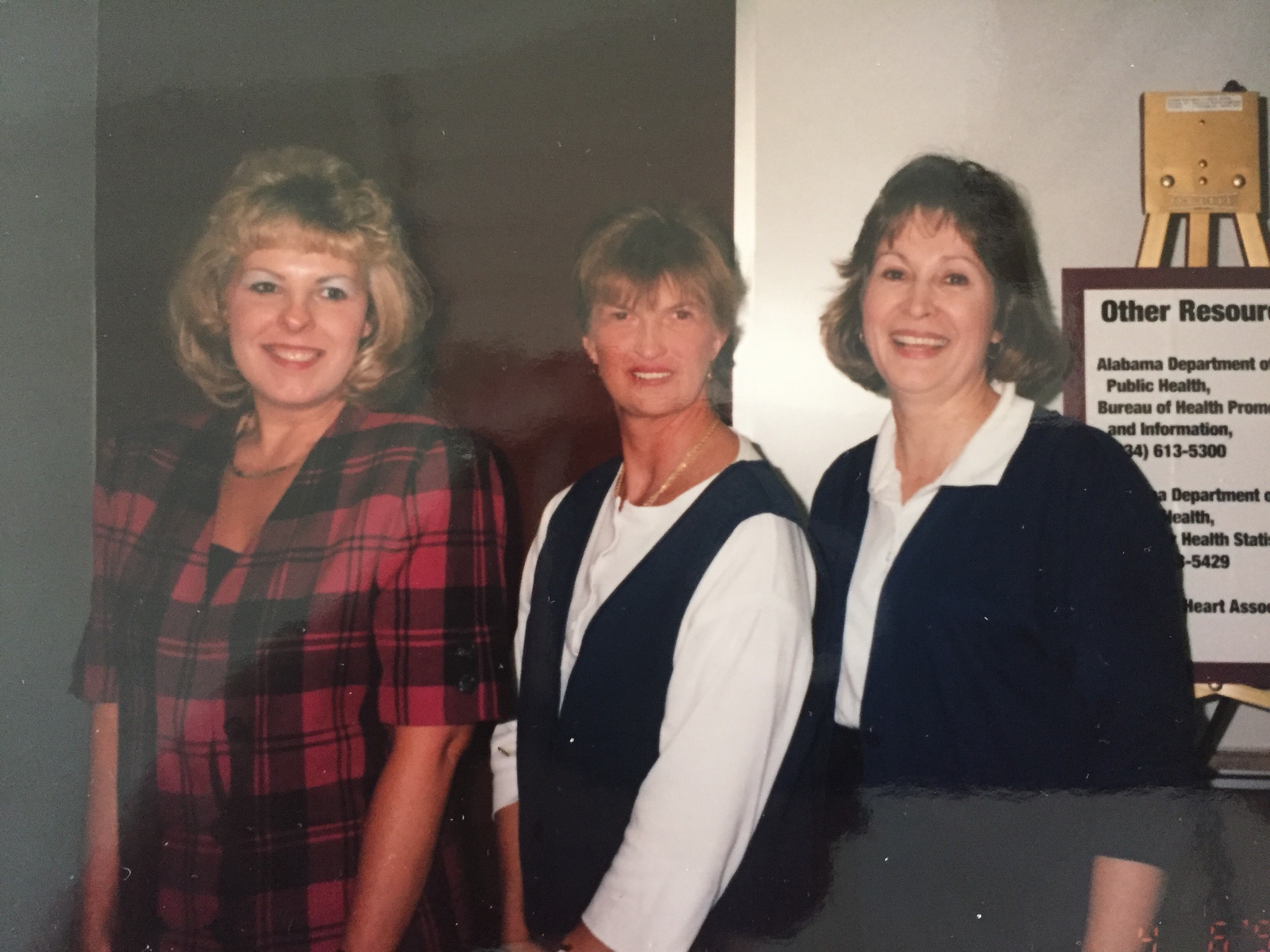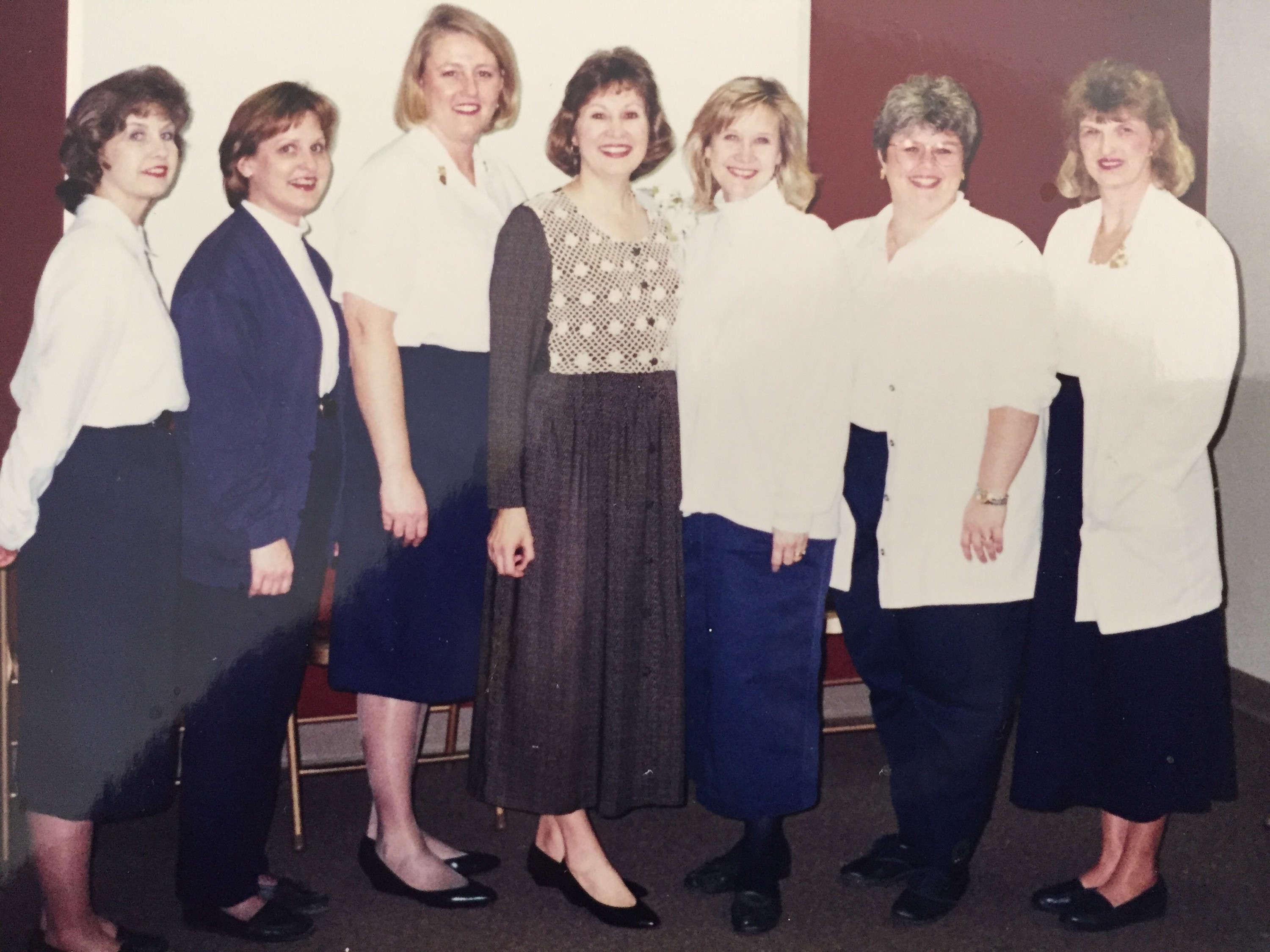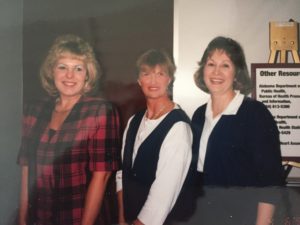An interview with Terri Andrews, who is affected by ectrodactyly-ectodermal dysplasia-cleft lip/palate (EEC) syndrome and who had a 20-year career as a registered nurse.
When you were growing up did you know you wanted to be a nurse?
I always knew I wanted to be in the medical field but I wasn’t sure exactly what role I would take on. I was a little naive about how to get into the field and what my options were. My interest in the medical field started when I was a child and in the hospital a lot. I wanted to help others the way they helped me.
Another career path I considered was going into the US Postal Service. It seemed like an interesting place to work and I knew the benefits would be good, plus I would get lots of holidays off.
When I got old enough, I went to one of the nursing schools to find out what I needed to do to get in. The dean told me that he didn’t think I would be able to get in because of my hands. It made me mad, but at the same time I thought maybe he was right.
I applied to school to become a physical therapist or occupational therapist. Three weeks before school was to start I had surgery on my nose. The doctor put an implant into it to hold up the tip and my body rejected it. I had to drop out of school to heal from that and have another surgery where they used bone from my scalp instead.
After that, I went to the post office to take the postal exam and I got a 98 on it! I told them that I didn’t want to be a mail carrier and work outside. I wanted to work inside the post office. They didn’t contact me about any jobs for a while, and when they finally did, it was for jobs that were further away and I would have had to move, which I didn’t want to do.
At this point, I decided to take a job at a nursing home as a nurses aid, so I could get a taste of what it would be like to be a nurse. I kinda got tired of that because all we did was change beds, clean the patients and clean up their bedpans and stuff. So I thought, did I really want to be a nurse if this is what it meant?

Then I thought, well I will apply at another nursing school that offers the RN program. I talked to the Dean of Nursing and told her that the other nursing school told me I couldn’t do it because of my hands. I wasn’t sure if they were right because I wasn’t sure all of the things I would have to do as a nurse.
She looked at me and told me that the only thing I might have trouble with would be the gloves – keeping them sterile and keeping a sterile field. She had me watch a video and then she gave me a book, some sterile gloves and a sterile catheter kit and told me to go home and practice until I knew I was ready. Then I was to call her.
After I showed her that I could maintain a sterile field, she told me that if I could take Anatomy & Physiology over the summer and pass it, I was in the program.
About halfway through nursing school, I got a letter from the post office that they had an opening. So I had to decide whether to keep going with nursing or go for the post office job. Since I was already putting out money for school, and I was halfway through, I decided to keep going.
Continuing with school paid off. I was able to get a better job with my RN certificate than I would have with the LPN that I would have gotten from the first school. So it worked out for the best.
What happened once you finished school? What kind of job did you start out with?
Right after graduation, you have to work as a temporary RN until you pass your boards. My first job was in a hospital where I was a floor nurse until my boards came in and I passed. Then I worked as a charge nurse on the floor and then I worked in the ER.
What’s a charge nurse?
The charge nurse is the head nurse for the floor. I don’t mean to brag, but I was the kind of person that people liked working with because I wanted us to work as a team. I wasn’t above helping to roll patients over to change sheets or clean up messes. I did anything that needed doing to help keep things running smoothly.
How long did you work in hospital settings?

I worked at two hospitals for a total of about 10 years.
Then I went to the Alabama Public Health Department. It was a very busy place. We took low-income families and did child healthcare, children’s physicals, immunizations, family planning and early prenatal care, std testing, blood pressure program, WIC, and tuberculosis testing and treatment. It was very stressful because we all did it all.
My favorite thing in the hospital was starting IV’s. If there was a hard one, they called me to do it. Same thing at the health department – if someone was drawing blood and couldn’t find the vein they called me. I would feel for the vein before putting my gloves on, and then remember where it was.
What was your least favorite thing about being a nurse?
At the hospital, my least favorite was cleaning up excrement, of course! At the Health Department, I didn’t like doing children’s physicals because it was one after another. It was up to you to catch if something was wrong. I felt like a doctor or a nurse practitioner should have been doing that. Nurses aren’t trained to diagnose.
You eventually had to leave nursing because of your eyes. Can you describe when things started to get bad, and how things progressed?
As you know, people with EEC always have eye problems and occasional flare-ups. When my eyes started getting worse I struggled to drive facing the sun or in the dark when the car headlights would shine in my eyes. At work, it was getting hard to read the little numbers on the medicine codes. Then, my right eye was getting to where I couldn’t even see the big E on the board.
That’s when I made an appointment with the eye doctor and they sent me to a cornea specialist in Birmingham. My eyes were getting worse and worse. When I tried to read anything, the letters were doubling and blending together. The cornea doctor said I needed to rest and moisturize my eyes. I only got real relief from using ointment, but then of course I couldn’t see because everything was blurry.
I asked the doctor how could I rest my eyes if I needed to work. So he said I should think about quitting. He said he would write a letter so I could qualify for disability. It was a tough decision that Joe and I were going to have to make. It got so bad that I couldn’t even keep my eyes open and I would lay my head on my desk at work. Driving home was scary and I would just pray that I would make it home safely. Many times I would get home and take ibuprofen and sit in a dark room and cry. My eyes would hurt so bad, I couldn’t do anything else.
In 1999 I finally quit. I filled out all the forms for disability. I even wrote a letter saying that I didn’t want to do this. I had worked hard my whole life and I’d worked hard to become a nurse. I was only quitting because of my eyes.
Once you submit the forms, there’s a waiting period. Everyone told me I would probably get denied the first time, but I didn’t.
Aside from the early challenge of proving your hands would not get in the way of being a nurse, and the later challenge of your eyes, did any other aspects of ectodermal dysplasia affect you in your career? Did you ever get too hot in stressful moments or anything?
Well, luckily working in hospitals they keep it pretty cool so I never got too hot.
About the only part of me that sweats is my head, and I sweat when I am stressed. So sometimes the sweat would be running down my face. Stress also aggravates my eyes, so I would have occasional flare-ups.
Nose running was often a problem and teary eyes would be frustrating when wearing gloves. I was always hoping that nobody would look too close and see a drip at the end of my nose before I was able to take off my gloves and grab a tissue.
In the later years when I had to start wearing a wig I would worry that a child would pull it off, but that never did happen.
Do you have any advice for young people who are deciding what they might want to pursue as a career? Would you go back and give yourself any advice if you could?
You know your limits and what you can and can’t do. Pretty much most of us can do anything that we want to do. If people suggest that you can’t do it, prove to them that you can. We always have to prove that we can do it. Not to say that people who are “normal” don’t have to prove themselves, but we have to do a little extra. I say just keep persistent and show them that you can do it. Don’t get mad about it.
I don’t think I would go back and do anything differently. Fortunately I had a very good dean at the second nursing school, who gave me the chance to prove myself. If they don’t offer you the chance to prove yourself, you gotta find a way to prove it anyway.
I don’t get too upset when someone offers to help me with something, because in my nursing experience I have seen people who looked like they wouldn’t be able to do something but then they could. I learned that if in doubt, just ask the person if they need help, and if they say no, then let them do it themselves.
Editors Note:
Terri Andrews is the NFED liaison for Alabama. She and her husband Joe live in McShan, Alabama. Terri blogs about her experiences with EEC on her own blog, as well as in guest posts for the NFED.
Do you have a career story you’d like to share? Contact Heather McKelvie at HeatherNFED@gmail.com
Other Posts You May Enjoy
NFED Class of 2015 – We Are So Proud!
Ectodermal Dysplasias in the Workplace


[…] Career Reflections – Terri Andrews […]